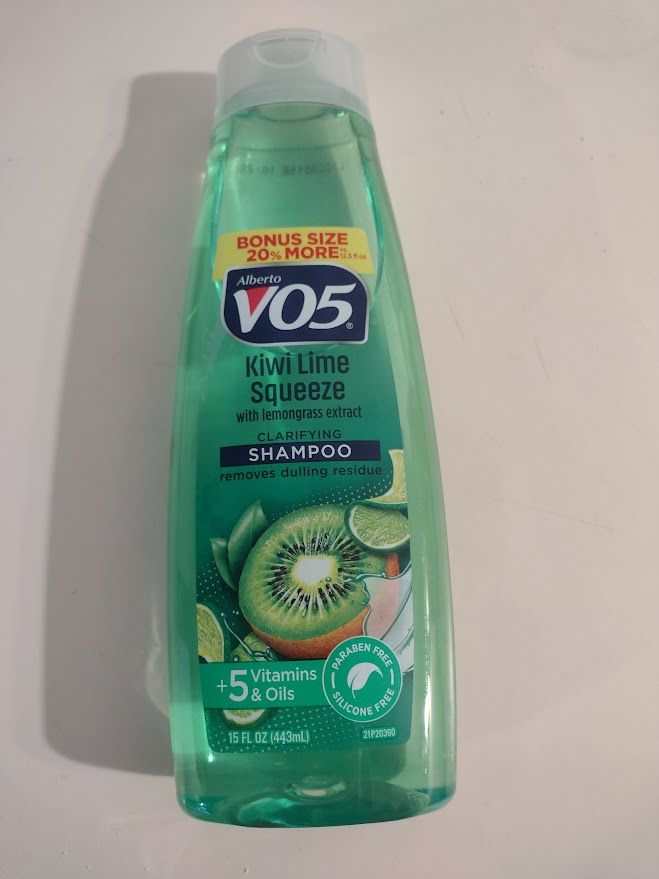
Lessons I learned from an irritatingly confused walk in the local Safeway
If you've ever traveled to a developing country for any length of time, you swiftly learn, as I did back in 1983, that the selection of goods gets trimmed down considerably the further afar you go.
Fifty years ago when I was in Fiji, if you went to the supermarket, you learned that the word "super" is relative. Back then, on the main island, if you wanted deodorant, your options were Right Guard, Right Guard or Right Guard.
You might be able to choose from spray or roll-on. Otherwise, well, Right Guard.
When I returned to America, I recall being stunned when I walked into a Walgreen's store in a suburb of D.C. The plethora of choices was overwhelming, a fact of American life explained beautifully in the book The Tyranny of Choice, by Barry Schwartz.
I love this simple synopsis of the book:

Yesterday after a long day of writing and a horseback ride in the redwoods, I took a quick detour to the local Safeway here in Crescent City, CA, to pick up a few things. Having just come from a town of 3000, where I was in a yurt, I was again plunged into the pit of despair from too damned many options.
I wanted shampoo. Simple, cheap shampoo. I use it not just for my hair but it also does a fine job for washing clothing in a sink and much more. I'm not going to plop down fifteen or twenty or fifty bucks for something that I'm going to use for such everyday activities. No breathless promise on the bottle is going to convince me otherwise.
Of course you could plop down $160 for twelve ounces of PHILIP B Russian Amber Imperial Shampoo. Really?
Are we that stooopid? Yes. We are. We buy organic, knowing at some level it probably isn't really. We spend oodles of money on high-end brands for this that and the other knowing that none of them really lives up to the billing. Certainly not true for all things, but most of us who have been around a few extra decades have watched the quality of trusted brands plummet, while the ad copy promises far more.
Which got me thinking.
America's marketing machine is awfully good at convincing us to spend ever so much more for some pretty basic things.
How did we get to such a place where the overabundance of choice, and the overuse of superlatives to describe awfully mundane things work to wiggle even more from our wallets?
There's an excellent history. A good one, too, especially if you want to get to the point where you will do a flat forehead slap for EVER spending a fortune on a bottle of water or a basic sneaker whose price went skyward because of a name printed on it.
Not too many years ago a friend gave me a badly beaten-up copy of the BBC Documentary Century of the Self.
From Wikipedia:
...The Century of the Self asks deeper questions about the roots and methods of consumerism and commodification and their implications. It also questions the modern way people see themselves, the attitudes to fashion, and superficiality.
The business and political worlds use psychological techniques to read, create and fulfill the desires of the public, and to make their products and speeches as pleasing as possible to consumers and voters. Curtis questions the intentions and origins of this relatively new approach to engaging the public.
You can find the whole thing on YouTube, right here. I strongly recommend it:
This is a no-nonsense, come-to-your-senses whack up 'side the head to STOP allowing ourselves to be fooled by witty, clever copy. Just STOP.
As someone who had been sucked in completely and had most of my retirement income siphoned out of my wallet by the false promises of everything from diet pills to designer duds, this program was a breath of fresh air.
Better yet, as an expose on where marketing comes from, and how we went from basic wants to screaming needs for things which allow us to feel superior simply because we spent more money on them, it's a gift.
This is, in fact, where social media marketing got its evil roots. I'm no fan of it even as I am forced to deal with at least some of ity as a 21st Century human.
Those old enough to have made it through the Eighties, big hair, big shoulder pads and silly movies like Road House and Lethal Weapon (okay, they were fun) were all the rage, might also recall that it was all the rage to spend your mortgage on a designer item. Said designer item had to be draped across the back of a chair in such a way as to display the label, such as Kenzo, to prove that the owner had, indeed, spent a fortune.
Pretension ruled. Hell, Reagan was in office.
After I watched The Century of the Self I was never the same again. In a good way, mind you. For when you strip off all the bullshit that is clever copy and you dig down with blunt honesty into your psyche, what you and I really NEED is very simple.
That is freeing. You and I need water, we don't need a pretentious designer bottle of this:
Acqua di Cristallo Tributo a Modigliani Acqua di Cristallo – $107,200 per liter. The most expensive bottle of water ever sold is one Acqua di Cristallo Tributo a Modigliani. It sourced the water from springs in France and Fiji, plus a glacier in Iceland. Oh yeah, there's also 5 mg gold dust sprinkled inside and the entire 750 ml bottle is coated in 24k gold.
Increasingly the uber-rich demand such things. I suppose the air of superiority which comes of ingesting water sprinkled with gold (which still comes out as foul-smelling piss, sorry) is worth it.
We still die, we still rot, we still smell.
Believe it or not, all this was running through my monkey brain as I stood in the shampoo aisle at Safeway. It's quite remarkable what you think about when you're pissed off, and genuinely desire simplicity.
At the bottom of the aisle, next to the overpriced Suave (that's a shocker, when did the humble SUAVE get pricey???) I found a bottle of VO5, for all of $1.49. Twenty cents off, it said. I snapped it up. Basic. Simple.
VO5 was once the top brand in hair care, when I was five years old, in 1958. Alberto-Culver, a brand now largely defunct. Here is their story:

What struck me from the article:
Alberto Culver was known for its support of health care, medical research, education and women in the workplace. It did not test its products on animals and stated this on its product packaging.
Way ahead of its time.
Now, the slim bright green bottles advertising kiwi-lime ingredients (why I wonder?) were the cheapest thing, well below eye level. What was at eye level were acres of products promising everything from instant weight loss to an instant castration of the evil ex. At a hell of a lot higher prices. Castration of one's ex is, I guess, expensive.
I kid. But the promises are ridiculous. The federal government allows such promises because they aren't explicit enough to get the promiser in trouble. That massive grey area is where Western marketing lies, literally lies, and lies in wait for the unwary consumer. Such as, organic, fat-free, etcetera.
Caveat emptor, but we aren't wary. We are easily seduced. I sure as hell was.
I wanted, and found, simple. A product that was once the leading item when I was five, relegated to the bottom of the shelf. It's too cheap to be given eye-level status.
That was what I needed, that was what I bought.

Today I spend at least part of the day in the great Redwood groves. I want time in a place of awe. It cost me gas and time to get here, and I mean to make the most of it. I don't need designer duds to do it, just adequate warmth and rain protection.
Other than that, the world is chock-full of enough awe and wonder to feed that need to be special.
We ARE already special, we made it here. Most things beyond that are a waste. Not all. Just most.
Make good decisions in your life.
I heartily recommend Century of the Self. It's a real opportunity to challenge how we approach not only our consumerism but our society. The BBC did one hell of a fine job.
Let us do a better job, because rampant consumerism is killing the world with all of its awe in it. But that's just me.
What do I know? I like cheap shampoo.

Dear Walkabout Saga Reader:
Thank you so much for taking a few minutes out of your life to read my work. WalkaboutSaga is an act of love and devotion, and I hope that you found value in it.
If my work appeals to you, may I kindly invite you to consider joining those Patreon supporters whose generosity keeps the gas in my tank as it were.
Such articles take time, resources, research and effort. Even a small amount of support truly helps me keep this going. In challenging times, I recognize that even a small amount is hard. Those who can give, I appreciate it. Those who cannot, I hope my words are helpful.
My purpose is to Move People's Lives. I can do more of that with your help.
Thank you.
You can explore that option here.
However you decide to partake of my writing, again, thank you.


Comments powered by Talkyard.